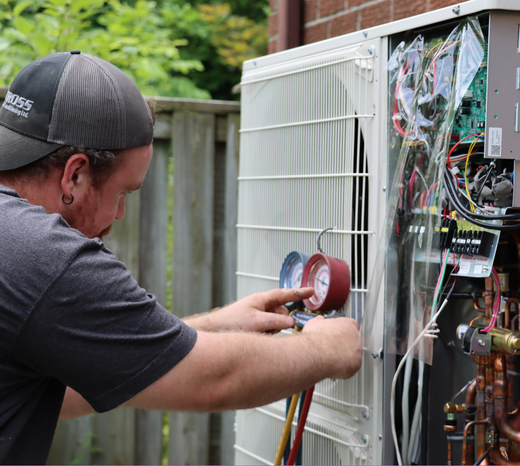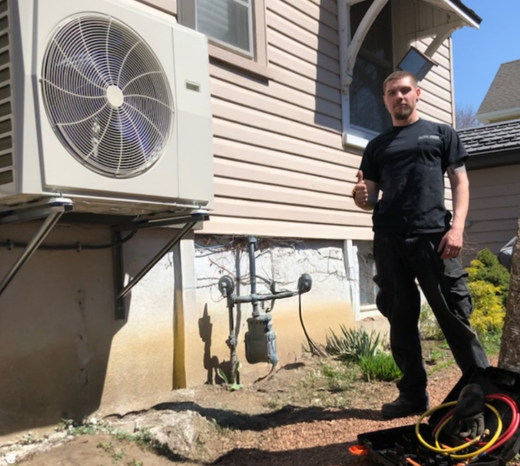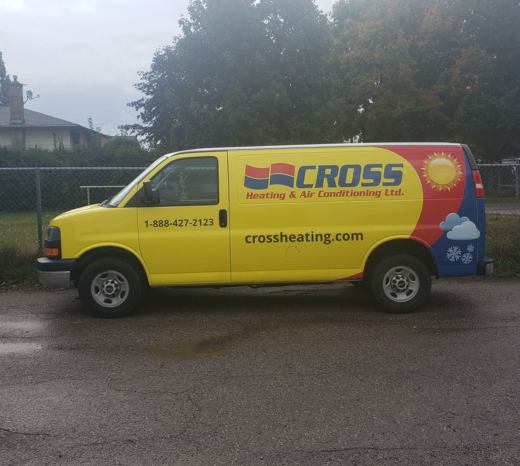From cleaning your filters to inspecting your ducts and beyond, there are plenty of things you can do to make sure your heat pump provides efficient home comfort for as long as possible. See our top recommendations for at-home heat pump maintenance here.
...
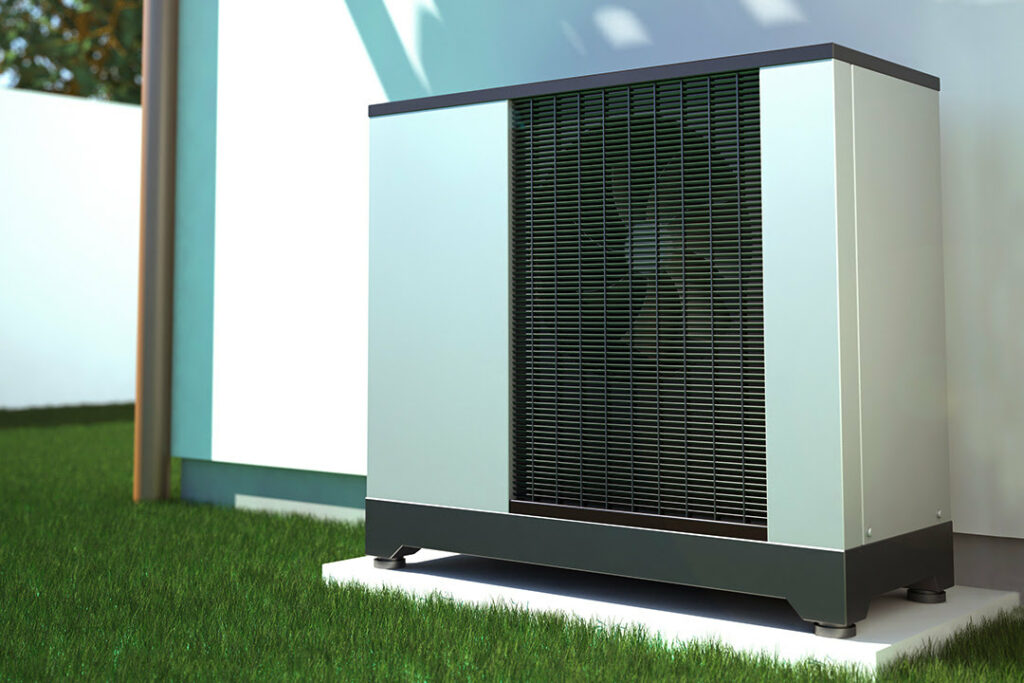
Installing a new heat pump in your home can keep you cool in the summer and warm in the winter—but to make sure you get the most value possible out of your heat pump, you’ll want to make sure you keep it properly maintained. While high-quality heat pumps can last for 15 years or more, it takes a little time and attention to keep them efficient during that time.
Cross Heating & Air Conditioning has experience installing, repairing, and maintaining heat pumps throughout Waterloo, Hanover, and Listowel—so we know all about how to keep them working properly. Read on for our list of the top maintenance tips you should follow to help your heat pump last.
DIY Heat Pump Maintenance Tips for Homeowners
Not all heat pump maintenance tasks require professional help—you should be able to do most or all of these ones on your own.
Regularly Inspect & Clean (or Replace) Filters
A clean filter allows for proper airflow, which improves efficiency and reduces the strain on your system. Check your heat pump's filters at least once a month, especially during heavy-use periods.
Clean or replace filters as necessary (but at least every three months) to maintain optimal performance. Reusable filters can be cleaned, but disposable ones need to be swapped out.
Inspect Your Ductwork for Leaks or Gaps
Your ducts are responsible for carrying treated air throughout your home, so they need to be free from damage if you want your heat pump to perform efficiently. Inspect your ducts for leaks, damage, or loose connections, and ensure that your ducts are properly sealed and insulated.
Minor duct issues can be temporarily fixed with duct sealant or sealing tape (not duct tape, which is actually less effective). However, these are only temporary fixes—you’ll need to call a professional for repairs if you want to solve the problem permanently.
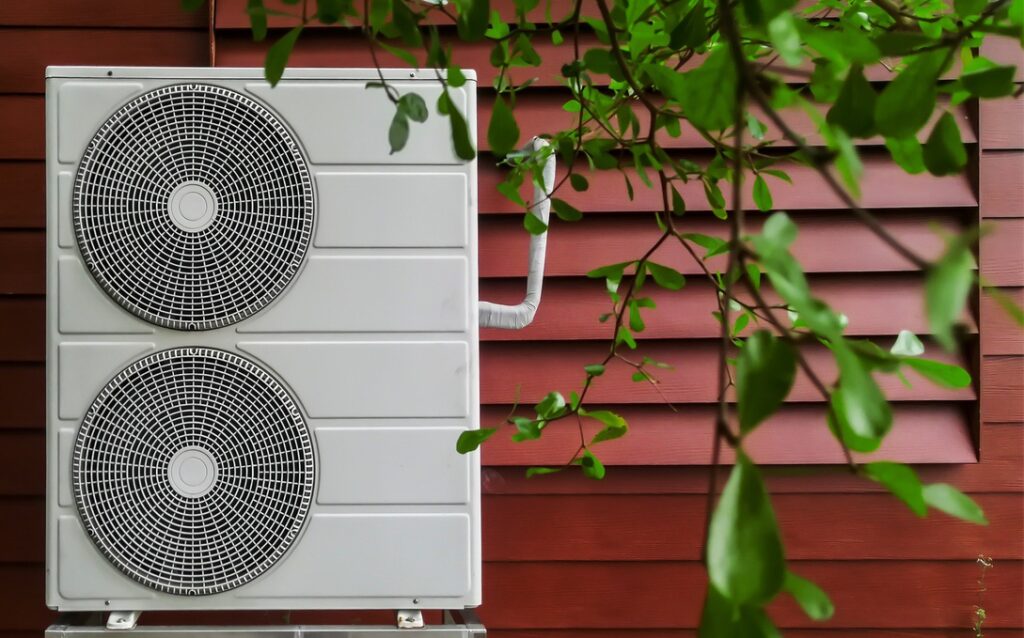
Clean the Outdoor Unit
Remove debris, such as leaves, grass, or dirt, from around the outdoor unit. This ensures that objects or particles don’t make their way in and create mechanical or air quality problems while your heat pump is running.
Once you’ve cleared the space around the outdoor unit, open it up and gently clean the coils and fins using a soft brush or vacuum with a brush attachment. Straighten any bent fins with a fin comb, which can be purchased at a hardware store. If you do not feel comfortable doing this yourself, don’t risk damaging your heat pump or voiding your warranty—call us for help instead.
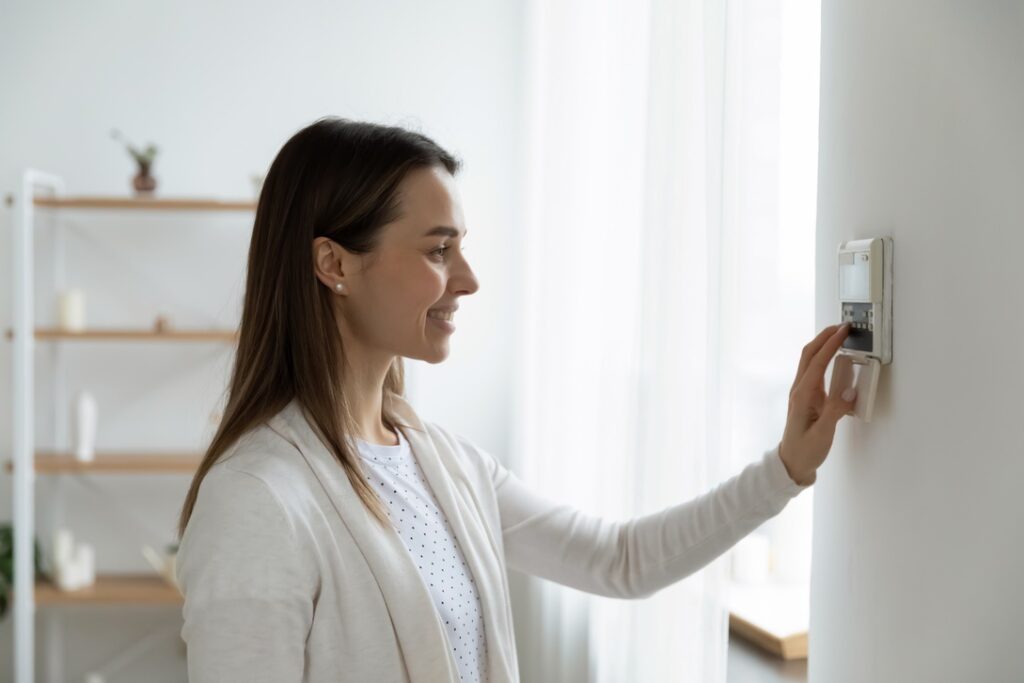
Check Your Thermostat Settings
Ensure your thermostat is set to the correct mode (heating or cooling) for the season, and replace the batteries if necessary. Many heat pump efficiency problems result from incorrect thermostat readings, which can cause the unit to overwork itself and affect its longevity.
Investing in a programmable smart thermostat can help you circumvent many of these issues, since it can automatically adjust your heat pump’s output to maintain the temperature you want without wasting unnecessary energy.
Inspect Your Blower Fan (& Lubricate the Motor)
Your heat pump’s blower fan moves treated air throughout your ducts and is usually located inside your air handler. Open the indoor unit and check the fan and motor for signs of wear or damage—these include ice buildup, wobbling, cracks, and bent blades.
Lubricate the motor and fan bearings, if required, according to the manufacturer's instructions. Again, if you’re not comfortable with this, call our team for help.
Inspect Your Refrigerant Lines
Look for signs of leaks or damage in the refrigerant lines—these include kinks or cracks in the lines, as well as droplets or pools of refrigerant nearby. You should also consider insulating exposed refrigerant lines to prevent energy loss as you run your heat pump.
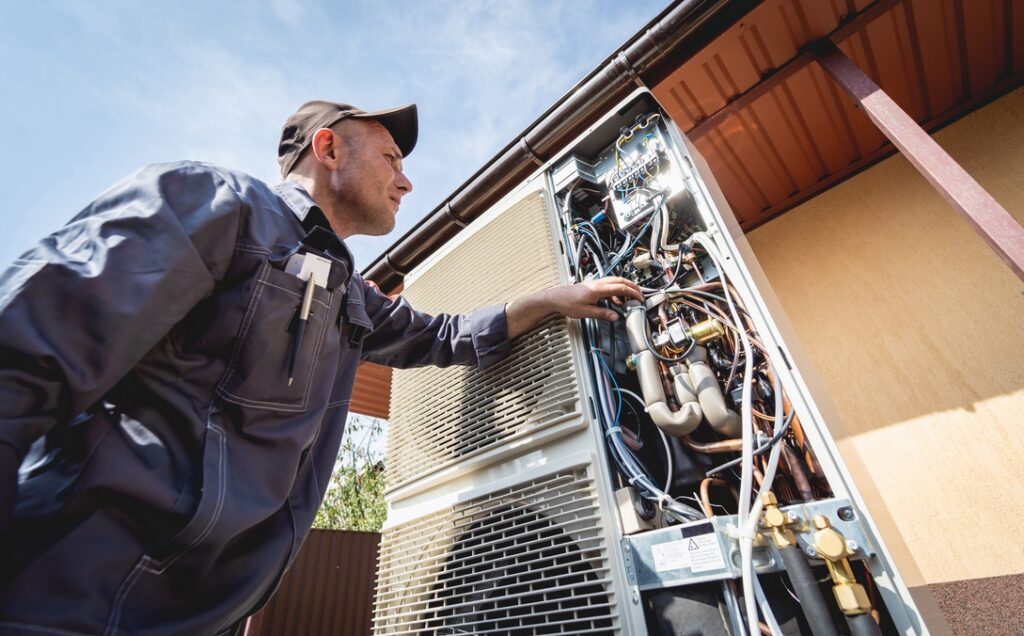
Heat Pump Maintenance Tasks that Require Professional Help
While there are many tasks you can do by yourself, there are some that require professional HVAC contractors' expertise.
Annual Professional Tune-Ups
Have your heat pump serviced by our qualified technicians at least once a year. For best results, do it twice per year—before each heating or cooling season begins.
Refrigerant Level Checks & Adjustment
Refrigerant is made from freon, which can be extremely dangerous if inhaled. Always call a professional to check and adjust the refrigerant levels in your heat pump.
Checking the refrigerant levels in your heat pump is important for making sure it can transfer heat into or out of your home using the right amount of energy. We’ll take care of this during your annual tune-up.
Repairing or Replacing Major Components
If your heat pump requires repairs or replacements of major components, like the compressor, it's best to rely on a professional. Purchasing aftermarket components yourself can be unreliable, since the quality can be difficult to verify—and trying to install these parts yourself can void your warranty.
Electrical Checks & Repairs
Working with electricity is dangerous and illegal if you aren’t a licensed electrician. If you think you’re having trouble with your heat pump’s electrical components or wiring, call for help—we’ll be able to correctly diagnose the issue and either repair it or refer you to a qualified electrician who can.
Investing in regular maintenance, both DIY and professional, will help you maximize the lifespan and efficiency of your heat pump. Contact our experts at Cross Heating & Air Conditioning to provide reliable and comprehensive support for all your HVAC equipment so that you can stay comfortable for longer in your home.

